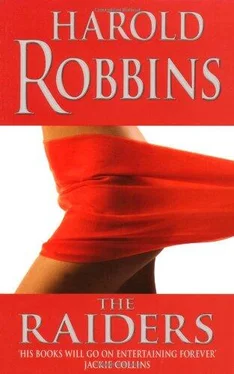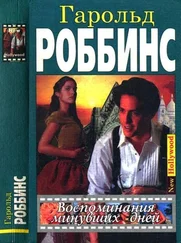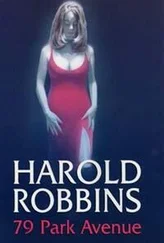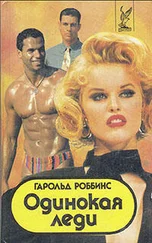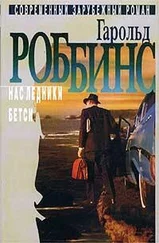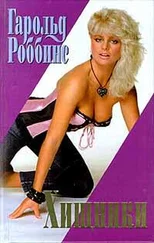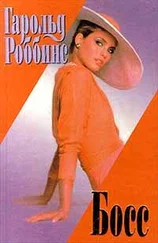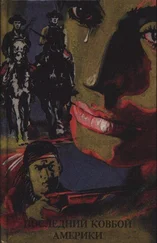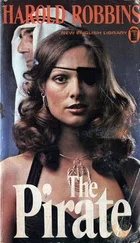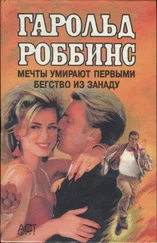Гарольд Роббинс - The Raiders
Здесь есть возможность читать онлайн «Гарольд Роббинс - The Raiders» весь текст электронной книги совершенно бесплатно (целиком полную версию без сокращений). В некоторых случаях можно слушать аудио, скачать через торрент в формате fb2 и присутствует краткое содержание. Жанр: Современная проза, на английском языке. Описание произведения, (предисловие) а так же отзывы посетителей доступны на портале библиотеки ЛибКат.
- Название:The Raiders
- Автор:
- Жанр:
- Год:неизвестен
- ISBN:нет данных
- Рейтинг книги:3 / 5. Голосов: 1
-
Избранное:Добавить в избранное
- Отзывы:
-
Ваша оценка:
- 60
- 1
- 2
- 3
- 4
- 5
The Raiders: краткое содержание, описание и аннотация
Предлагаем к чтению аннотацию, описание, краткое содержание или предисловие (зависит от того, что написал сам автор книги «The Raiders»). Если вы не нашли необходимую информацию о книге — напишите в комментариях, мы постараемся отыскать её.
The Raiders — читать онлайн бесплатно полную книгу (весь текст) целиком
Ниже представлен текст книги, разбитый по страницам. Система сохранения места последней прочитанной страницы, позволяет с удобством читать онлайн бесплатно книгу «The Raiders», без необходимости каждый раз заново искать на чём Вы остановились. Поставьте закладку, и сможете в любой момент перейти на страницу, на которой закончили чтение.
Интервал:
Закладка:
"Life," he said quietly.
They lay on his bed. She wanted to be kissed more before he entered her, so she rolled on her side and pressed her mouth to his. He responded forcefully. They kissed so hard she could taste blood from her lips. Then he turned gentle and pushed his tongue into her mouth. She had heard of this but had not imagined the lazy delight she would find in it. They lay side by side for a long time, their tongues caressing each other. She held his penis in her hand, and he stroked her wet private place with one long finger.
Until his patience ran out. Then he pushed her over on her back and rose to straddle her. For a moment she was afraid. For a moment she was sorry she had brought herself to this point. Then it was too late for fear, too late for regret.
He was tough and he was tender. He was gentle and he was rough. He hurt her and he soothed her. He subdued her and he exalted her. She shrieked and writhed under his unrelenting deep strokes: from pain and pleasure so intermixed she could not separate them. And when he finished and withdrew, she was hurt, she was exhausted, she was drenched with sweat; she was submerged in warmth and wonder.
For sure she would never again live without it.
"Big brother," she whispered, playfully mimicking a girl child.
"Hmm?"
"How soon can we do it again?"
"In a few minutes," he said. "Then never again after tonight."
15
1
FOUR MONTHS AFTER THE DEATH OF NEVADA SMITH — that is, in late summer 1953 — Bat flew to Havana. Jonas sent him. It was the first time Bat would be working alone, without his father's close supervision.
Fulgencio Batista had sent Jonas an invitation to come to Havana, delivered as a personal message by the Cuban consul-general in New York. Batista hoped Jonas Cord would invest money in Cuba: specifically in building a casino-hotel. Jonas had replied that he could not come anytime soon but would send his son, Jonas Enrique Raul Cord y Batista.
They sat down over dinner in the presidential palace. Batista pronounced himself overjoyed to make the acquaintance at last of his niece's son.
"We've met before, of course," he said, speaking Spanish. "I came to Cordoba. You were but a child."
"I remember," said Bat.
"I came again. You were in Europe fighting the war."
Fulgencio Batista was fifty-two years old that year, a compact man who still carried himself as the army officer he had been. He appeared to be of Spanish-Indian extraction: swarthy of complexion, with dark eyes and brushed-back hair held in place with a fragrant oil. He wore a cream-colored single-breasted suit, a pearl-gray shirt, and a red-and-blue tie in a bold pattern. On his left hand he wore a massive gold ring.
They talked for a while about nothing consequential. Then Batista explained why he had invited the Cords to come to Cuba.
"It is too bad that neither you nor your father has ever come here before," he said. "This country is poor, but this island is beautiful. The climate is better than Miami's. The beaches are extraordinary. The fishing is superb. The flight is short and easy. The Cuban people are hospitable. No nation in the world offers more beautiful — or complaisant — women. I have determined to build our economy by making Cuba attractive to tourists. Anyone who invests merely two hundred thousand dollars in a hotel or motel can have a gaming license. Cord Hotels, Incorporated, wants to build a casino-hotel in Las Vegas. Why not build it here?"
"The Saturday Evening Post article —" Bat started to say. He referred to an article published in that magazine in the spring, exposing dishonest practices in Cuban casinos.
"But you do not know what we did," Batista interrupted. "I turned the army against the card sharps. Military intelligence was given the task of identifying them. Many were Americans. We arrested them and deported them. The Cubans were released from jail with a warning they would return to jail and stay there if they ever went near a casino again. Now we play by new rules. The razzle-dazzle games — eight-dice games and all that — are forbidden. We know we cannot attract the clientele we want if we allow cheating."
"It's hard to control," said Bat.
"I've hired an expert," said Batista. "You know him. Meyer Lansky."
"I've never met him," said Bat. "My father knows him."
"A really profitable gaming operation," said Batista, "can only operate if the people who play can have confidence in it. That's what Lansky knows: what the rules should be and how to enforce the rules. Strictly."
"That's what we're doing in Las Vegas," said Bat. "Playing by the rules. Including the tax laws."
"I want to make Cuba the Monte Carlo of the Caribbean," said Batista. "Most Americans don't want to take the time or spend the money to fly to the Mediterranean, but here — a short flight from their shores — we can provide everything Monte Carlo offers and more."
2
Bat accepted Great-Uncle Fulgencio's offer of "a really superior girl" for the night and woke exhausted and hungry when the telephone rang and the hotel operator said a Mr. Lansky would like to see him. Five minutes later Meyer Lansky was at the door. Wearing a white terry-cloth robe. Bat welcomed him in.
The word about Lansky was that he was a small man. He was: a solemn little man, prematurely aged as Bat judged him. His temples were gray, his face was marked with liver spots, and his eyes looked weary. He had an extraordinarily big nose. He bore the marks, too, of a heavy smoker. He wore a dark-blue suit that looked a little too large for him, a white shirt, and a bow tie.
"I wasn't expecting you," Bat said.
"I can come back another time," said Lansky.
"No. Sit down. You'll have to forgive me, though. There's a girl in the bathroom, and breakfast is on its way up. She'll be out of the suite in five minutes. I ordered for two. Can you use some breakfast?"
"Just the coffee," said Lansky.
"I'm told it's a Cord family trait to be hungry in the morning," said Bat. "I'm only gradually picking up on Cord family traits. Anyway, I'm glad you're here. We have some things to talk about."
Lansky sat down in a leather-upholstered chair facing the couch where Bat would sit and take his breakfast off the coffee table. "The President," he said, "made you a pitch about building a casino-hotel here."
"Right."
"If he can make it work, what he's talking about, there's a ton of money to be scooped up in Cuba."
"The country isn't stable," said Bat.
"Once there's a big American investment, certain people will lend their talents to make it stable," said Lansky.
Bat shook his head. "I wish you hadn't mentioned it."
"I've got nothing to do with that," said Lansky. "You'll have nothing to do with it. It'll happen just the same, and the President will accept the help he gets."
"We'll all be tarred with the same brush," said Bat.
"Would you refuse to take profits from oil because John D. Rockefeller was a robber baron?" asked Lansky.
"You're a consultant to President Batista. You're a consultant to us. Is there a conflict of interests?" Bat asked.
Lansky shrugged. "Find one," he said. "My job for the President is to make gaming profitable in Cuba — by making it honest. That's what your father asked me to do for The Seven Voyages. That and to avoid a tax prosecution by stopping the skimming. There's money to be made in Cuba. I wish I had enough to build a casino of my own."
"I'd be reluctant to make a long-term investment in Cuba," said Bat. "And I know my father would be reluctant. It would take ten years to recover the money it would take to build a hotel. Cuban governments don't last that long. You may be confident in the staying power of my great-uncle, but I am skeptical."
Читать дальшеИнтервал:
Закладка:
Похожие книги на «The Raiders»
Представляем Вашему вниманию похожие книги на «The Raiders» списком для выбора. Мы отобрали схожую по названию и смыслу литературу в надежде предоставить читателям больше вариантов отыскать новые, интересные, ещё непрочитанные произведения.
Обсуждение, отзывы о книге «The Raiders» и просто собственные мнения читателей. Оставьте ваши комментарии, напишите, что Вы думаете о произведении, его смысле или главных героях. Укажите что конкретно понравилось, а что нет, и почему Вы так считаете.
